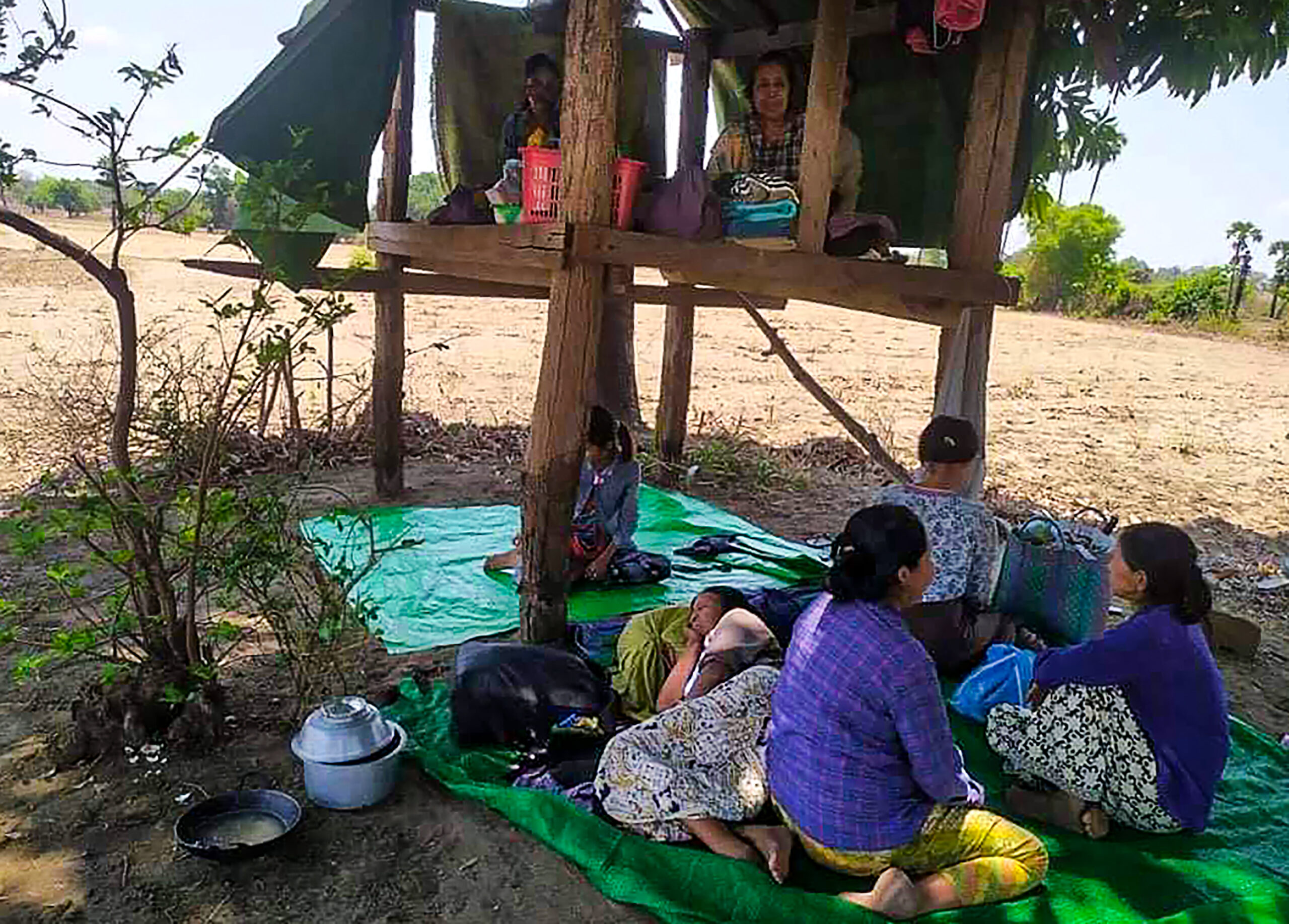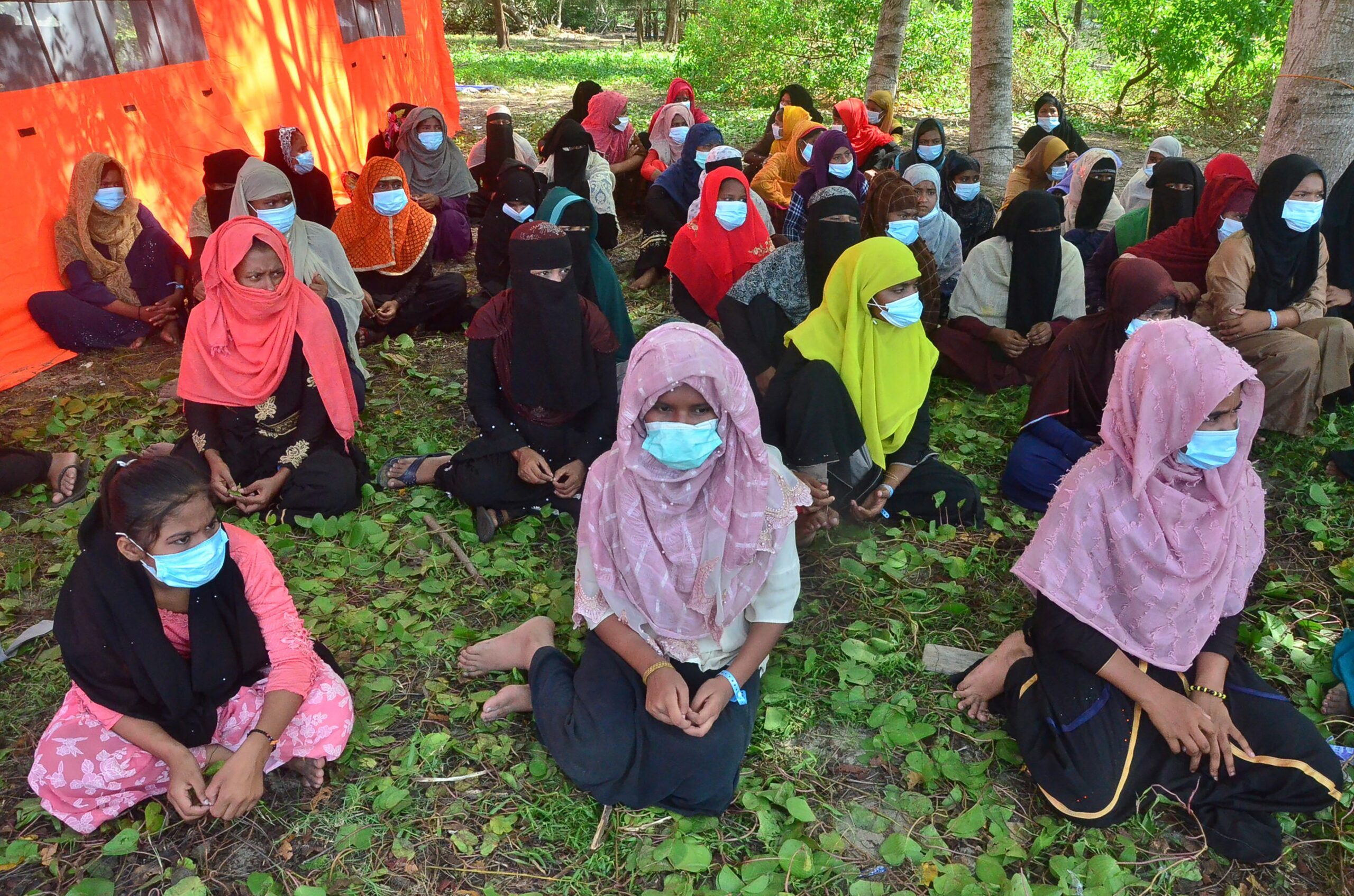While violence continues to devastate lives in conflict-torn Myanmar, women and girls are faced with the increasing risk of sexual violence. The Myanmar military have a long history of committing acts of terror against women, specifically attacking marginalised ethnic and religious groups throughout the country, but the last year’s coup has made things worse for women across the country.
It’s a problem exasperated by the fact that survivors of sexual assault in Myanmar almost never see justice.
There is no political will to support the implementation of women’s rights. Since the attempted military coup on 1 February 2021, the military has expanded operations around the country. As the crisis rages, over 2,300 people have been killed and over 15,000 have been arrested. This expansion comes with increasing threats to women’s security.
In late August, at least seven women were raped by the junta following raids on two villages in Kani Township, Sagaing region. That same month, a disabled woman in Sagaing was also raped during military occupation of local villages. Countless reports from media and rights groups show that for women military custody is not only life-threatening, but rape and sexual assault is very a very real risk.
Nicholas Koumjian, head of the Independent Investigative Mechanism for Myanmar, stated in his latest report to the UN Human Rights Council, there is increasing evidence of sexual and gender-based crimes against both women and men. Many women’s rights groups working within the country have similar findings.
Moon Nay Li, spokeswoman for the Kachin Women’s Association Thailand, said the military junta is the main perpetrator of crimes related to sexual violence. “There is no rule of the law in the country,” she said. “Organisations which try to directly or indirectly support survivors are also facing great risks and are being threatened by the Myanmar army.”
But troops are protected through a 2008-military drafted constitution that gives the military the right to “independently administer all affairs of the armed forces and establish permanent military tribunals.” In addition, the Commander-in-Chief, currently Min Aung Hliang, has the final say on these cases. Ultimately, in Myanmar, there is no rational justice system in place.

Under constant threat
Prior to the coup, securing justice through formal means was already challenging, particularly considering the economic barriers to travel for court hearings and legal fees.
Yet, now with over one million displaced, countless women and young girls are living in informal settlements to escape the war. While living in isolated areas, they have no access to legal representation, and limited ability to seek out law enforcement.
Naw Hser Hser, General Secretary at the Women’s League of Burma, said conflict-related sexual violence against women and girls has been used to terrorise them since long before the coup.
“Women and girls can face sexual violence at anytime because there is no one who can guarantee their security,” she said.
Under typical circumstances, a country’s government has an obligation to enact and prioritise effective and comprehensive laws on gender-based violence. But these do not exist under the junta.
Instead, victims struggle with accessing treatment, mental health services, protection and legal assistance after experiencing gender-based violence. Since the coup, the democratically elected government has been forced into exile. With elected officials in hiding, the military has stacked courts, parliament, and various social and defence sectors with military commanders and generals, furthering the distance to legitimate justice mechanisms.
As such, impunity continues to ravage and destroy the lives of women and girls.
“Women and girls are fearful and insecure,” Naw Hser Hser said. “There is no safety for them anywhere.”

A patriarchal system
In Myanmar, sexual violence against women is largely driven by a patriarchal system rooted in a history of sexist beliefs. The legal system has naturally evolved under these patriarchal norms and has made very little progress.
But even if there were an equitable legal system in place, the reality is that the current crisis has deterred all prospects for justice for victims of conflict-related sexual violence. Referral pathways under the previously elected government, which would have granted options for survivors, are now impossible to access.
Women-led organisations, such as the Karenni National Women’s Organization (KNWO), who operate on the ground in conflict-torn Karenni (Kayah) State, have had to change their approach. They still offer assistance for survivors seeking shelter in their safe houses, which provide accommodation, food and counselling to survivors of violence, but they’ve needed to adapt given the mounting crisis.
Despite the increase in military checkpoints across Karenni State, it has become much more difficult for KNWO staff and survivors to travel freely. Remote mobile services have been established for survivors, including a 24-hour help line, providing psychosocial services as needed.
“Women and girls who are survivors of sexual violence by the Myanmar army are trauamtised,” Miemie, Chairperson of KNWO said. “Especially for those displaced, they have nowhere to report their cases. Under the military junta, the judiciary system is broken. They also worry that local leaders will blame them for the attacks perpetrated against them. This is why it is important for victims to receive counselling.”
Many local womens’ groups say survivors are suffering from physical and mental trauma which has impacted their ability to concentrate and form relationships. Countless women have prolonged trauma. But under the current crisis, access to mental healthcare is scarce.
More funding for women’s groups and civil society organisations would help these groups tackle the symptoms of the conflict. These local organisations provide care through programs on survival empowerment, counselling and safe house services.
But although donations are critical, the situation on the ground will only improve once international stakeholders intervene through dialogue with the National Unity Government, Myanmar’s true government formed in exile. International actors must refuse to recognise the junta and cut off their financial powers.
While the UN shakes hands with a regime who murders its own people and denies them safety, survivors have shown profound levels of strength and courage. They deserve justice, accountability and reparations for the horrors they have endured.
Maggi Quadrini works on human rights for community-based organisations along the Thailand-Myanmar border.


